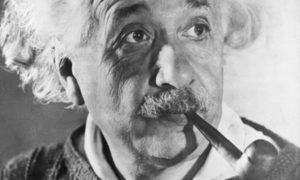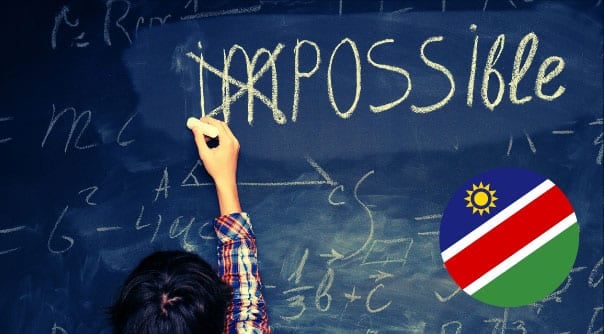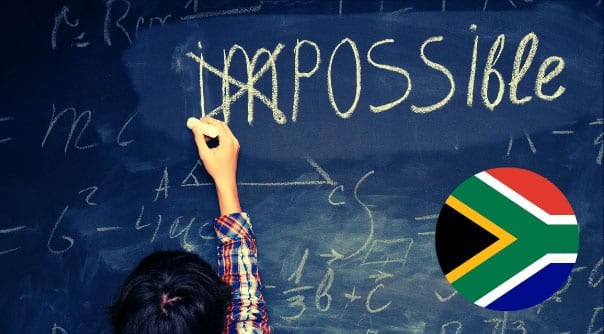 The popular image that men of eminence are learning disabled promotes an aura of romanticism around the learning disabilities field. Albert Einstein, arguably the most outstanding scientist of all time, is usually at the top of the list of famous dyslexics. You can read about Einstein’s learning disabilities everywhere:
The popular image that men of eminence are learning disabled promotes an aura of romanticism around the learning disabilities field. Albert Einstein, arguably the most outstanding scientist of all time, is usually at the top of the list of famous dyslexics. You can read about Einstein’s learning disabilities everywhere:
- AGS, a company that provides educational materials to teachers, headlines an advertisement with “Even Einstein had a learning disability.”1
. - The New York Orton Dyslexia Society markets a T-shirt with the logo “Einstein Edison and Me.”2
. - The Connecticut Association for Children with Learning Disabilities, under the headline, “Some Kids with Learning Disabilities Do Okay for Themselves,” writes: “Years ago there was a three-year-old child who couldn’t learn to talk. At eight, he still couldn’t read. His teachers thought he was retarded. He wasn’t. Albert Einstein had a learning disability.”3
.
It is interesting to note that a review of biographical sources provides little or no evidence to support this assertion.
According to LD lore, Einstein failed to talk until age four, resulting from a language disability. It is also claimed that Einstein could not read until age nine. To strengthen their case, LD proponents point to such facts that Einstein failed his first attempt at entrance into college and lost three teaching positions in two years.
A nice story but false, biographers say
While this makes a nice story, this widely believed notion is false, according to Ronald W. Clark’s comprehensive biography of Einstein and Subtle is the Lord: The Science and Life of Albert Einstein, a biography by Abraham Pais (Oxford University Press, 1982).
Pais states that although his family had initial apprehensions that he might be backward because of the unusually long time before he began to talk, Einstein was speaking in whole sentences by some point between the ages of two and three. Albert was introduced to his newborn sister when he was two-and-a-half years old. Expecting a toy, he asked, rather disappointedly, “Where are the wheels?”
According to Clark, a far more plausible reason for his relatively late speech development is “the simpler situation suggested by Einstein’s son Hans Albert, who says that his father was withdrawn from the world even as a boy.” Whether one accepts this interpretation, other information helps us to judge Einstein’s language abilities after he began to speak.
Einstein entered school at age six and, against popular belief, did very well. When he was seven, his mother wrote, “Yesterday Albert received his grades, he was again number one, his report card was brilliant.” At the age of 9½, Albert was accepted to the competitive Luitpold-Gymnasium. Had his grades in primary school not been above average, his entrance into the Gymnasium would not have been possible.
At the age of twelve, Einstein was reading physics books. At thirteen, after reading the Critique of Pure Reason and the work of other philosophers, Einstein adopted Kant as his favorite author. About this time, he also read Darwin. Pais states, “The widespread belief that he was a poor student is unfounded.”
Failing his college entrance exams
It’s true. Einstein did not pass the college exam the first time he took it. However, aside from being only sixteen, two years below the usual age, the plain fact was he did not study for it. His father wanted his son to follow a technical occupation, a decision Einstein found difficult to confront directly. Consequently, as he later admitted, he avoided following the “unbearable” path of a “practical profession” by not preparing for the test.
It is also true that, after graduating from the university, Einstein had difficulty finding a post. This was mainly because his independent, intellectually rebellious nature made him, in his own words, “a pariah” in the academic community. One professor told him, “You have one fault; one can’t tell you anything.”
Also true is that Einstein went through three jobs in a short time, but not because of a learning disability. His first job was as a temporary research assistant, the second as a temporary replacement for a professor who had to serve a two-month term in the army.
Clark remarks that it is “difficult to discover but easy to imagine” why Einstein held his third job as a boarding school teacher for only a few months: “Einstein’s ideas of minimum routine and minimum discipline were very different from those of his employer.”
Conclusion
In an article, “Was Einstein learning disabled? Anatomy of a myth” (published in 2004 in the Skeptic magazine, a revised version of an article that originally appeared in the March/April 2000 issue of the Journal of Learning Disabilities), Marlin Thomas concludes:
Given the meager basis for the claim that Einstein was learning disabled, one has to wonder why it has become so accepted. Part of the reason is the encouragement it gives all of us to know that even geniuses have shortcomings. The claim also enhances the prestige of learning disabled individuals. Any marginalized group benefits from having one of its members be a stellar figure in cultural history. These may be salutary, but the consequence of claiming that Einstein was learning disabled without historical evidence is harmful. It distorts the historical record, and it questions the credibility of other claims regarding the learning disabilities of prominent persons.
.
Edublox offers cognitive training and live online tutoring to students with dyslexia, dysgraphia, dyscalculia, and other learning disabilities. Our students are in the United States, Canada, Australia, and elsewhere. Book a free consultation to discuss your child’s learning needs.

.
References:
1.) AGS, Journal of Learning Disabilities, 1991, vol. 24, 87.
2.) New York Orton Dyslexia Society, “Enhancing Self Esteem: New York branch gifts” [Advertising pamphlet], 1994.
3.) Connecticut Association for Children with Learning Disabilities, “Some Kids with Learning Disabilities Do Okay for Themselves” [Poster], 1994.


